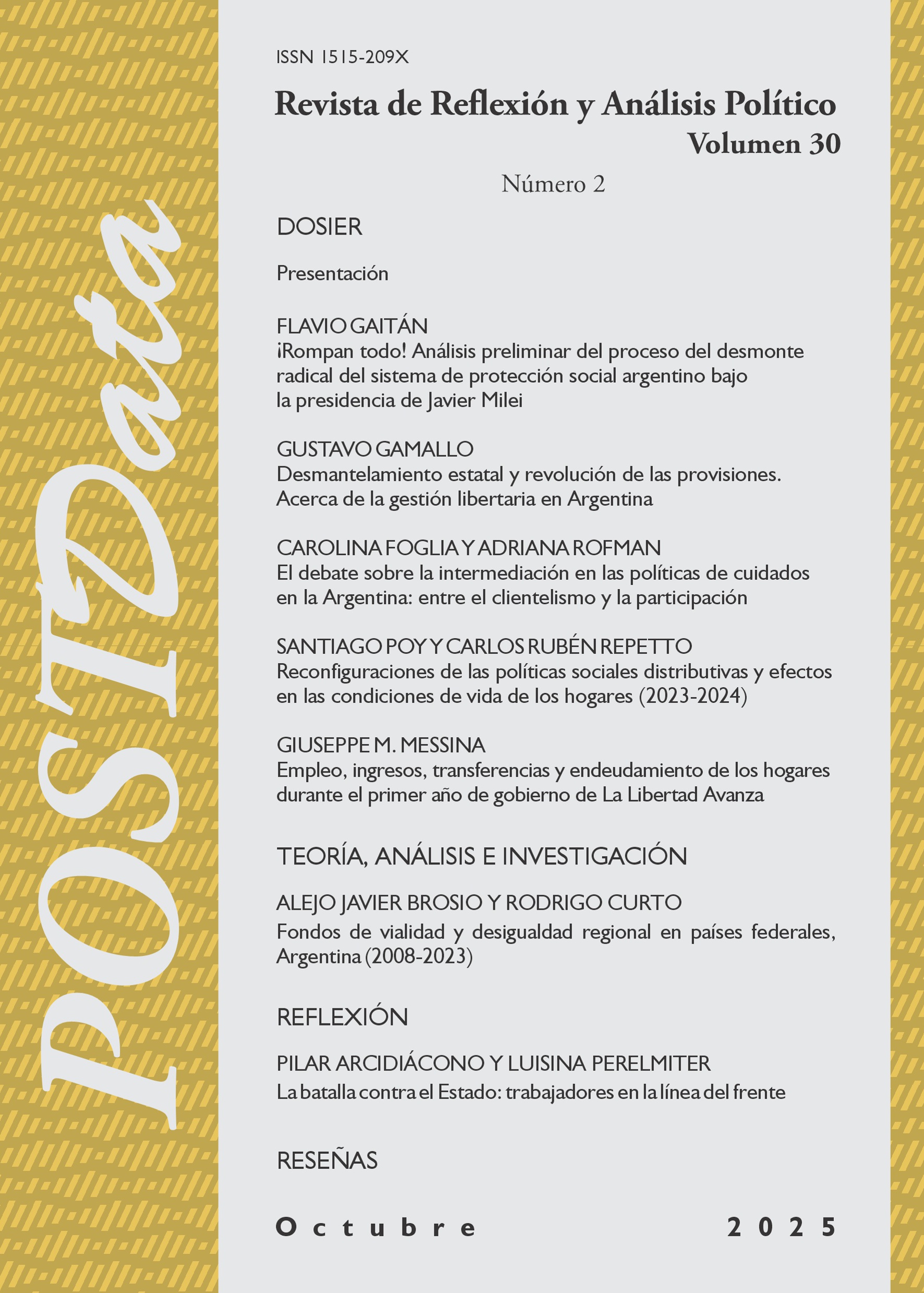En este renovado sitio podrán encontrar todos los artículos, reseñas y entrevistas desde el primero hasta el último número de POSTData. Pueden acceder a los mismos en la sección Números Anteriores o en la barra desplegable sobre el margen derecho. También pueden hacerlo a través de las palabras clave, destacadas sobre el mismo margen
En la parte inferior podrán encontrar un enlace directo hacia nuestra página en Facebook (Fan Page de Facebook) y nuestra cuenta de usuario en Twitter. Con estas herramientas esperamos poder difundir en mayor grado la revista en diversas redes académicas (tanto las que se sustentan sobre plataformas 2.0 como las que no) y así fortalecer nuestros lazos con científicos sociales de distintas partes del mundo.
En la solapa de Contacto podrán encontrar los distintos medios a través de los cuales es posible comunicarse con POSTData, ya sea para obtener información de la Revista como para remitir artículos o reseñas para los futuros números (para ello recomendamos leer antes la sección Cobertura y Colaboraciones).
Por último, convocamos a todos los colegas politólogos y politólogas interesados a enviar sus artículos, reseñas y notas de opinión a la Revista para su publicación. Estamos convencidos de que a través del intercambio y del debate académico podemos construir una mejor ciencia política. Las puertas están abiertas.
Gracias por visitarnos.
Martín D’Alessandro Gustavo Dufour





